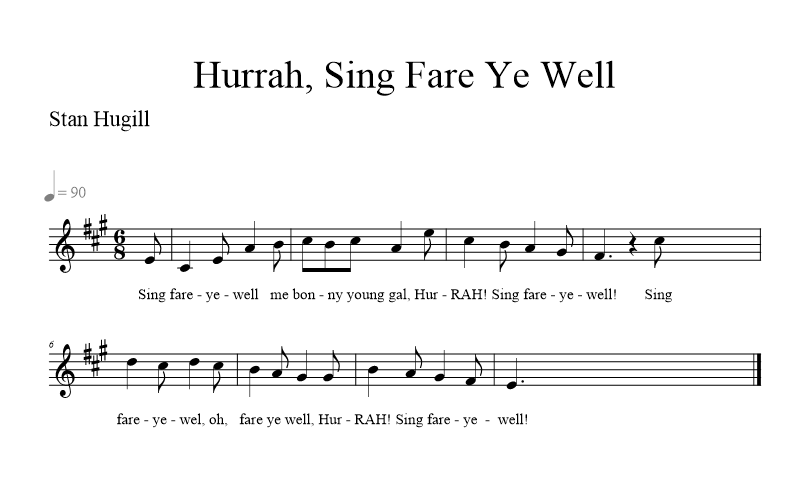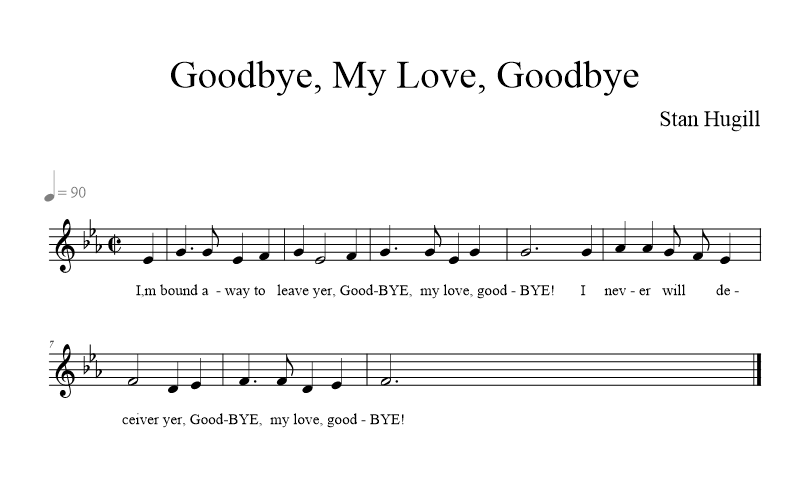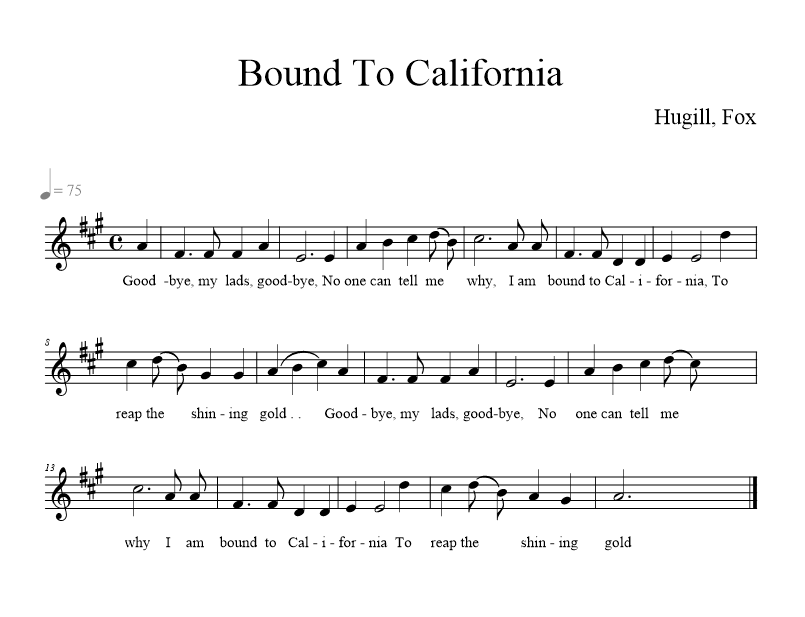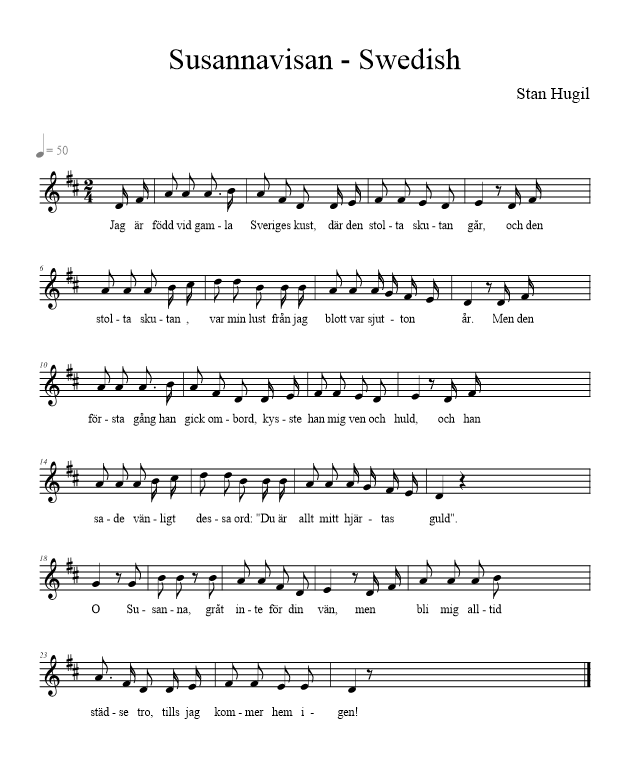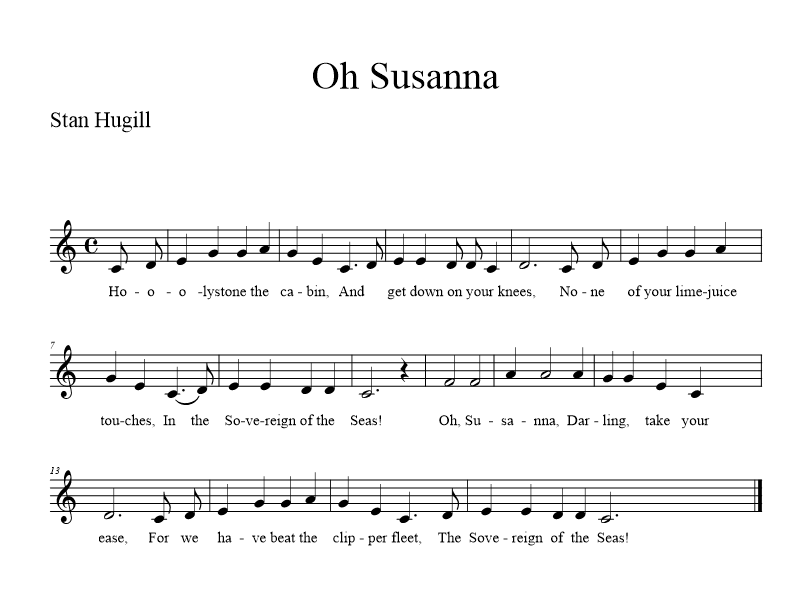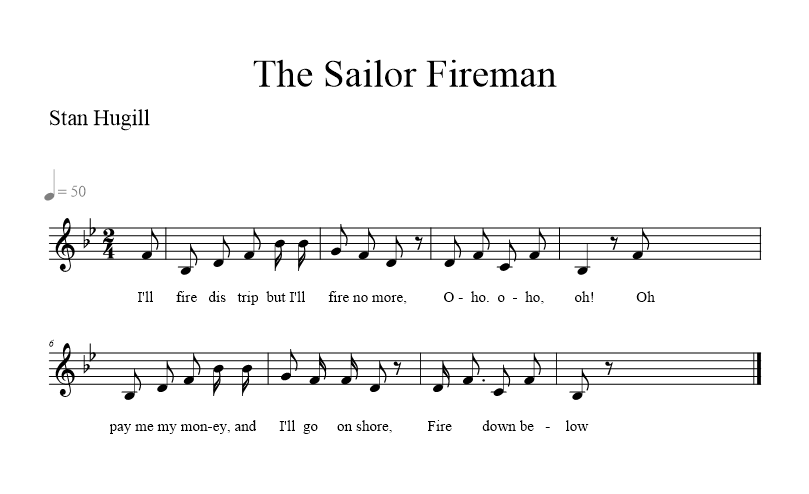Interesting Facts about the Goodbye Fare-ye-well (A)
Here is the most popular homeward-bound shanty of them all with, perhaps, the exception of “Rolling Home” – “Goodbye Fare-ye-well” include version Goodbye Fare-ye-well (A). The sailors sang this shanty at the windlass or capstan; when raising the anchor. Stan Hugill knows and publishes four versions of this song. This version is about usual homeward-bound sentiments.
The song will be reconstructed by myself as the capstan shanty.
The source of this sea shanty
The music: “Shanties from the Seven Seas” by Stan Hugill (1st ed p 120). I try to recreate this song from hearted Stan Hugill’s version from the album “Chants des Marins Anglais” (1992), with Stormalong John.
The lyrics: “Shanties from the Seven Seas” by Stan Hugill (1st ed p 120, 121).
The Record of the Goodbye Fare-ye-well (A)
You also can find this record on my YouTube channel here or directly listen below. Additionally, if you want to share your opinion about the record or share your opinion you can do it in my Facebook forum here, or leave a comment at the bottom of this blog article.
The musical notation
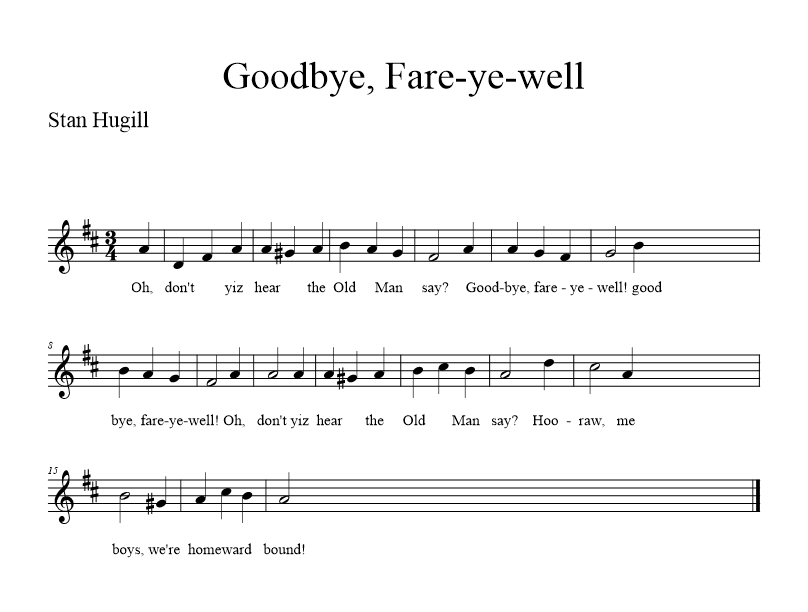
The full lyrics
Goodbye Fare-ye-well (A)
Oh, don’t yiz hear the Old Man say?
– Goodbye, fare-ye-well! goodbye, fare-ye-well!
Oh, don’t yiz hear the Old Man say?
– Horraw, me boys; we’re homeward bound!
* 2 *
We’re homeward bound; to Liverpool Town,
Where them judies they will come down,
* 3 *
An, when we gits to the Wallsey Gates,
Sally an’ Polly for their flash men do wait.
* 4 *
An’ one to the other ye’ll hear them say,
Here comes Johnny with his fourteen months’ pay!
* 5 *
Them gals there on Lime Street we soon hope to meet,
Soon we’ll be a-rollin’ both sides o’ the street.
* 6 *
We’ll meet these fly gals an’ we’ll ring the ol’ bell,
With them judies we’ll meet there we’ll raise merry hell,
* 7 *
I’ll tell me old mammy when I gets back home,
The gals there on Lime Street won’t leave me alone.
* 8 *
We’re homeward bound; to the gals o’ the town,
Stamp up me bullies an’ heave it around.
* 9 *
An’ when we gits home, boys, oh won’t we fly round,
We’ll heave up the anchor to this bully sound.
* 10 *
We’re fine flashy packet an’ bound for to go,
With the gals on the towrope we cannot say no!
* 11 *
We’re all homeward bound; for the old backyard,
Then heave, me bullies, we’re all bound homeward.
* 12 *
I wrote to my Kitty, she sez she is well,
She rooms at the ‘Astor’ and dines at the ‘Bell’.
* 13 *
Heave with a will, boys, oh, heave long an’ strong,
Sing a good chorus for ’tis a good song.
* 14 *
We’re homeward bound; we’ll have yiz to know,
An’ over the water to England must go!
* 15 *
Oh, the anchor we’ll weigh and the sails we will set,
The gals we are leaving we’ll never forget.
* 16 *
An’ when we git to the old Mersey Bar,
The girls’ll be flockin’ from near an’ from far.
* 17 *
We’re homeward bound; don’t ye hear the Mate say.
Hook on the ol’ catfall an’ rum her away.
* 18 *
We’ll spend all our money in one week a shore,
An’ then pack our bags–go to sea for some more.
* 19 *
We’re; homeward bound; don’t ye hear the sound?
Man the good capstan an’ run ‘er around.
* 20 *
We’re; homeward bound; an’ the wind’s blowin’ fair,
Our friends will be waiting to spend our pay-day.
* 21 *
We’re; homeward bound; for home; sweet; home,
Our sails; are set; the wind has come.

